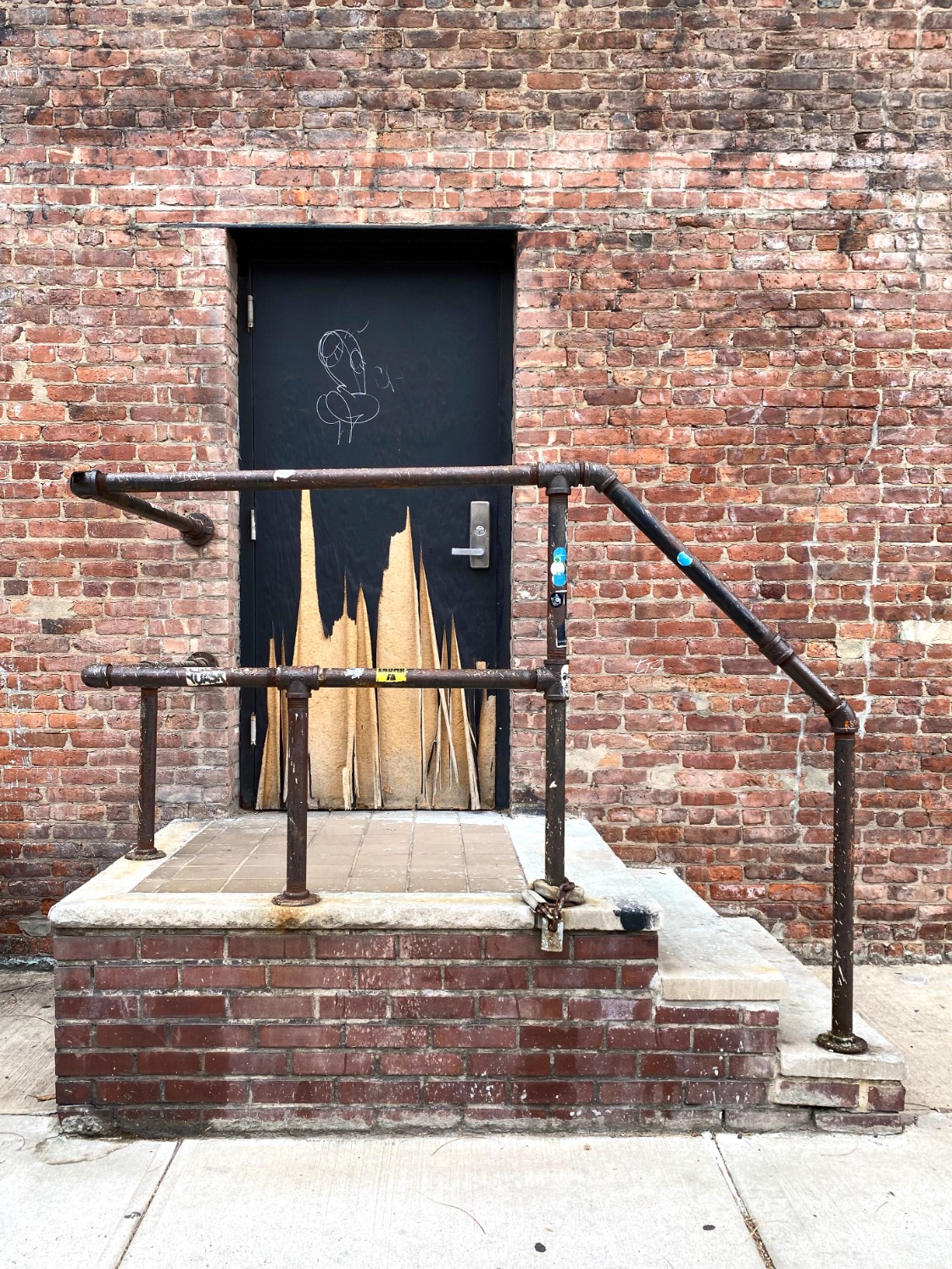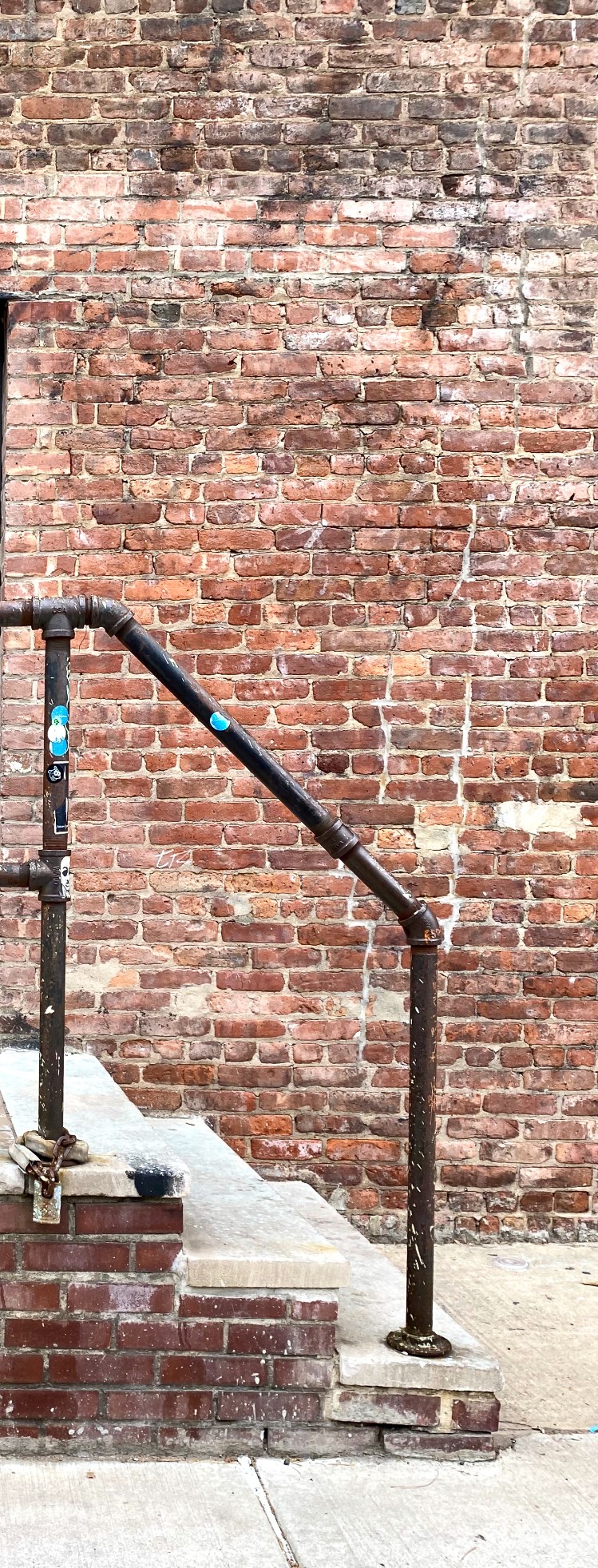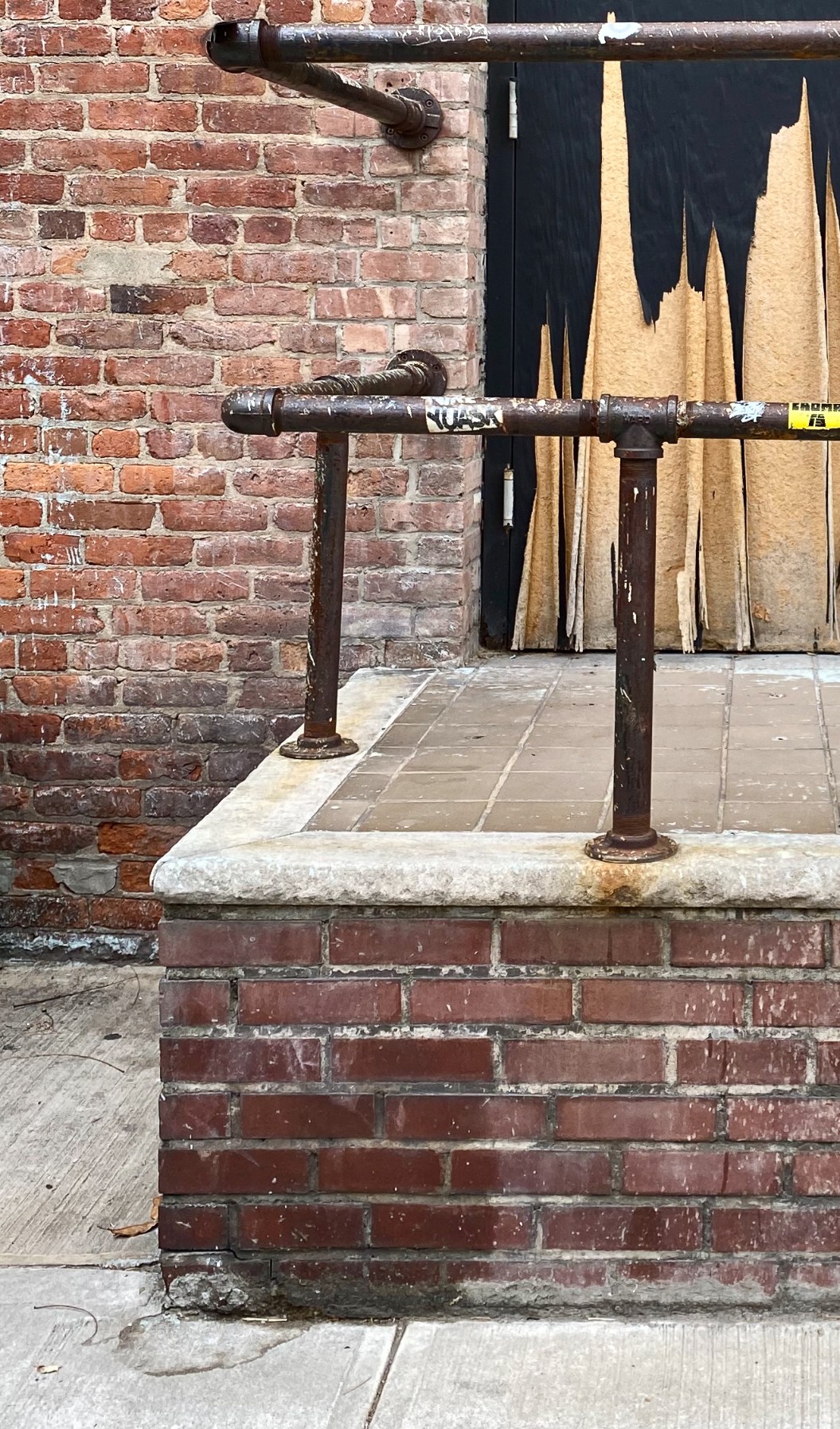Reflections on an injured door
A door is permission. May I come in? No, you may not. Yes, you may. A door is rejection. Closed. A door is a threshold. Step in. Step out. A door is a series of closings and openings, of locks and unlocks. A door is power.
I saw these grave injuries and a strange internal aww awakened in me as I passed by. Its skin peels and curls at the edges as if broiled, the singe clinging to brick. Hangs as if scratched and clawed at. Devoid of its power, guts out, it sags into strips of sad lumber. Looks mighty fragile for a symbol we usually know to be strong. I stared, then felt rude for staring and looked away, and caught myself. Did I just consider that I’d offended a door?
Ugly beauty is how I described it while talking about the mangled door with C. “Même pas,” she said, “it’s raw.” And that’s just it. This is why the sympathy lands just so. We all can relate to feeling singed and unpeeled, stripped of the power we were created with or given. No one is supposed to see the flesh beneath our skin, or to hear our roars and rage and outcries and sighs and groans, and yet.
The word “still”, as in the continuation of a state up to and including the present, holds some of the power the door surrendered, but the door is still able.
See the door.
See the peeling door.
See the peeling door that is shut.
See the peeling door that can still open.
See the peeling door that can still open, close, slam, lock, unlock, and welcome.


